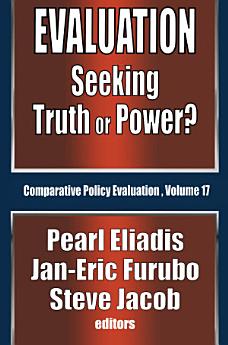Evaluation: Seeking Truth or Power?
Jan-Eric Furubo
Feb 2018 · Routledge
Ebook
240
Pages
family_home
Eligible
info
reportRatings and reviews aren’t verified Learn More
About this ebook
Evaluation has come of age. Today most social and political observers would have difficulty imagining a society where evaluation is not a fixture of daily life, from individual programs to local authorities to parliamentary committees. While university researchers, grant makers and public servants may think there are too many types of evaluation, rankings and reviews, evaluation is nonetheless viewed positively by the public. It is perceived as a tool for improvement and evaluators are seen as dedicated to using their knowledge for the benefit of society.
The book examines the degree to which evaluators seek power for their own interests. This perspective is based on a simple assumption: If you are in possession of an asset that can give you power, why not use it for your own interests? Can we really trust evaluation to be a force for the good? To what degree can we talk about self-interest in evaluation, and is this self-interest something that contradicts other interests such as "the benefit of society?" Such questions and others are addressed in this brilliant, innovative, international collection of pioneering contributions.
Rate this ebook
Tell us what you think.
Reading information
Smartphones and tablets
Install the Google Play Books app for Android and iPad/iPhone. It syncs automatically with your account and allows you to read online or offline wherever you are.
Laptops and computers
You can listen to audiobooks purchased on Google Play using your computer's web browser.
eReaders and other devices
To read on e-ink devices like Kobo eReaders, you'll need to download a file and transfer it to your device. Follow the detailed Help Center instructions to transfer the files to supported eReaders.






